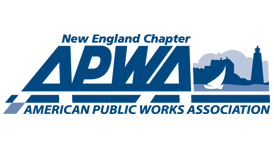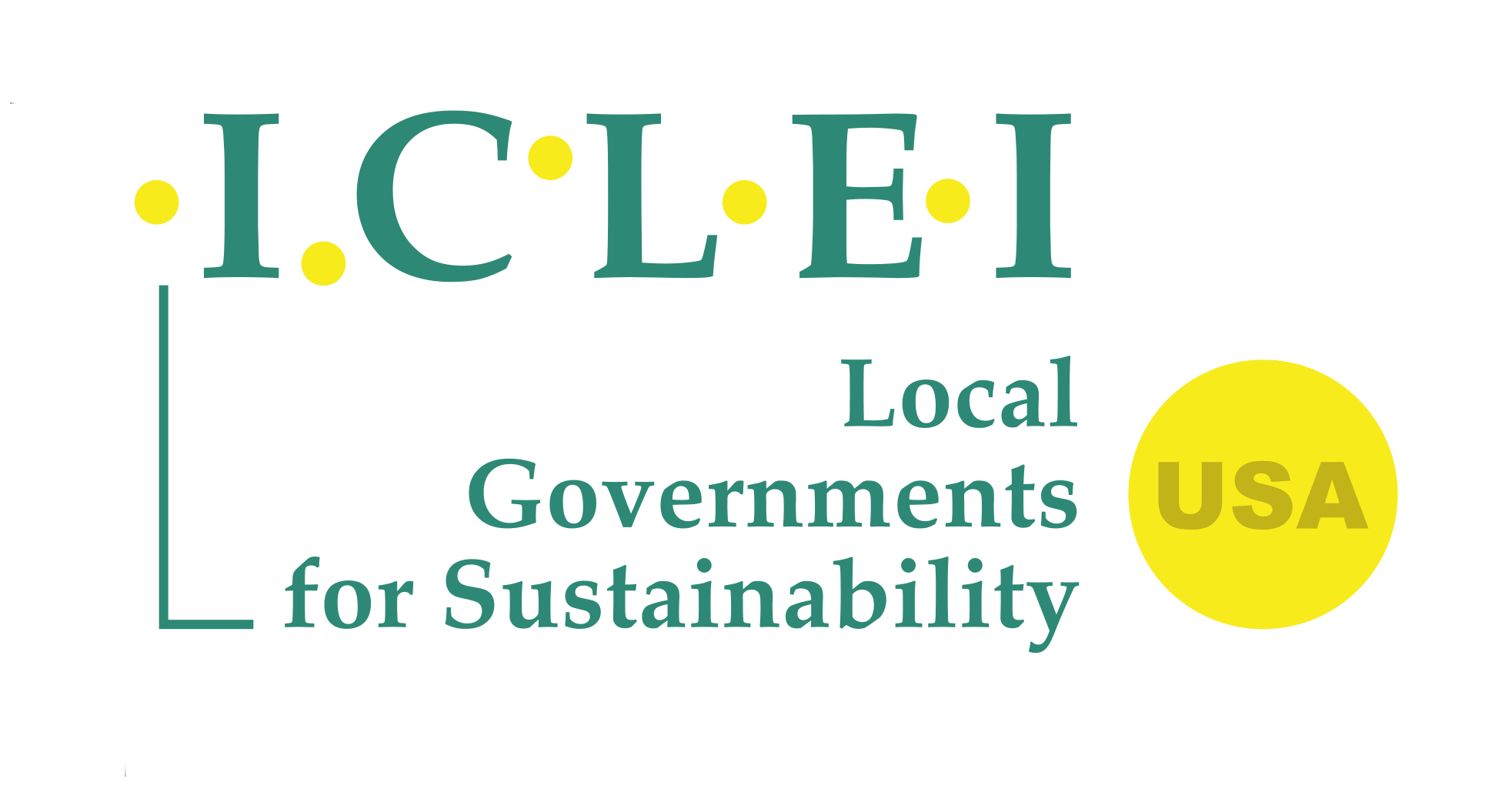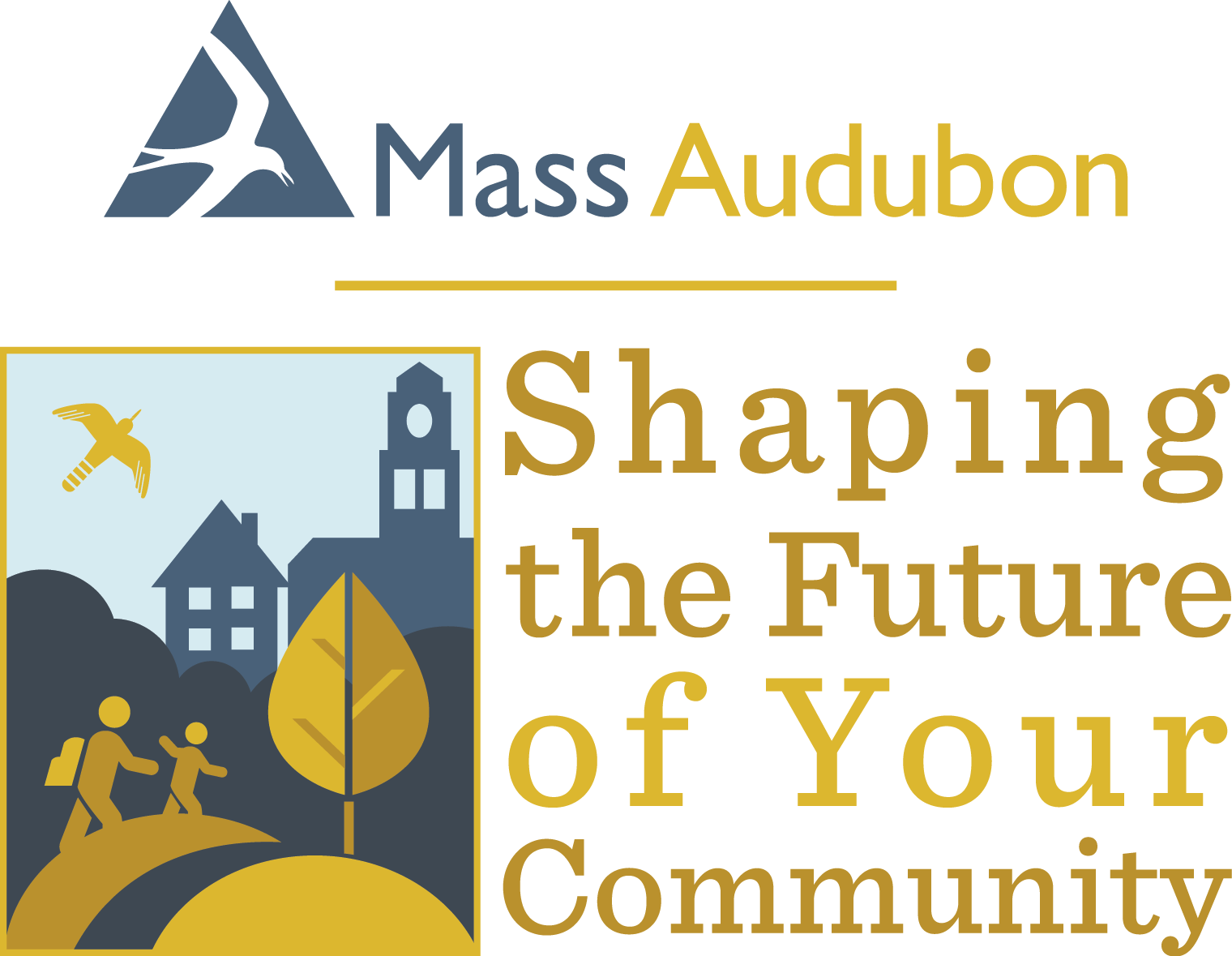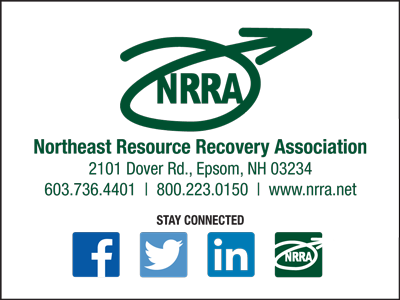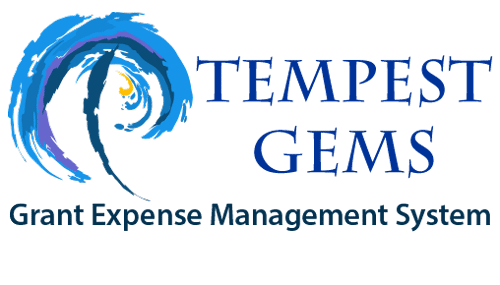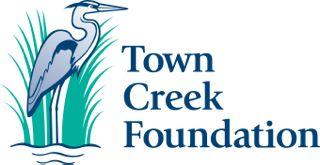Workshops
printer-friendly download of workshop descriptions
- 32 American Institute of Certified Planners CMs available
- 12 Assoc. of Certified Floodplain Managers CECS for Certified Floodplain Managers available
- 1.55 American Public Works Association CEU hours available
April 30, 2018 Workshops
Mobilizing Action: Effective Communication and Stakeholder Engagement Strategies
Parts 1 & 2
How do we engage our community? What does engagement really mean or look like? Learn the current social and psychological science research and how it can be applied to engage individuals to know, care and act upon climate change. Communication is more than just the message. Understanding your audience – who they are and how to reach them – and clarity in what you hope your communication will accomplish are critical to developing an effective communication strategy. This workshop will begin in the morning with the basics on engagement and communication stemming from the latest research. The afternoon will split into various smaller workshops running at concurrent times to dive deeper into different areas of communication and engagement. The afternoon workshops will focus on:
- Tools available for knowing and reaching your audience. This will include audience segmentation tools, the U.S. Climate Resilience Toolkit, micro targeting models, survey approaches and others;
- Creating a powerful story and using visualization as an effective communication method;
- Working with vulnerable populations and developing a community of practice;
- Game of Floods: play it and learn how to use it with participants
Kristin Baja, USDN Climate Resilience Officer;
Christa Daniels, Program Manager, Center for Climate Preparedness and Community Resilience, Antioch University New England;
Dave Herring, Director of Communication & Education, NOAA Climate Program Office;
Cara Pike, Executive Director, Climate Access;
Abigail Abrash Walton, Co-Director, Center for Climate Preparedness and Community Resilience; Director, Advocacy Concentration, Environmental Studies Master’s Degree, Antioch University New England
 Abigail Abrash Walton serves as co-director of Antioch’s Center for Climate Preparedness and Community Resilience (CCPCR), and as faculty in the Department of Environmental Studies, where she directs the Advocacy for Social Justice and Sustainability master’s degree concentration. Under her leadership, the CCPCR has developed and delivered applied research and education/training programming, including the Weathering Change: Local Solutions for Strong Communities webinar series, in partnership with NOAA and U.S. EPA; the CCPCR’s road test of version 1.0 of the Obama Administration’s Climate Resilience Toolkit; a coastal resilience Facilitated Community of Practice on Maryland’s Eastern Shore; development of a Climate and Health Adaptation Plan for New Hampshire’s Monadnock Region; and the 2018 Local Solutions: Eastern Regional Climate Preparedness conference. She also served on the leadership teams for the 2014 and 2016 Local Solutions conferences, convened by Antioch in partnership with U.S. EPA. Her research focuses on leadership, including fossil fuel divestment. Previously, she served as program director for the Robert F. Kennedy Memorial Center for Human Rights and New Hampshire Citizens Alliance, and as a Visiting Fellow at Harvard Law School’s Human Rights Program. She serves on the leadership team for the tri-state region’s Ecovation Hub (MA, NH, and VT).
Abigail Abrash Walton serves as co-director of Antioch’s Center for Climate Preparedness and Community Resilience (CCPCR), and as faculty in the Department of Environmental Studies, where she directs the Advocacy for Social Justice and Sustainability master’s degree concentration. Under her leadership, the CCPCR has developed and delivered applied research and education/training programming, including the Weathering Change: Local Solutions for Strong Communities webinar series, in partnership with NOAA and U.S. EPA; the CCPCR’s road test of version 1.0 of the Obama Administration’s Climate Resilience Toolkit; a coastal resilience Facilitated Community of Practice on Maryland’s Eastern Shore; development of a Climate and Health Adaptation Plan for New Hampshire’s Monadnock Region; and the 2018 Local Solutions: Eastern Regional Climate Preparedness conference. She also served on the leadership teams for the 2014 and 2016 Local Solutions conferences, convened by Antioch in partnership with U.S. EPA. Her research focuses on leadership, including fossil fuel divestment. Previously, she served as program director for the Robert F. Kennedy Memorial Center for Human Rights and New Hampshire Citizens Alliance, and as a Visiting Fellow at Harvard Law School’s Human Rights Program. She serves on the leadership team for the tri-state region’s Ecovation Hub (MA, NH, and VT).
Abigail chaired the City of Keene’s Planning Board (2011-2014) and served on the Steering Committee for the City’s Master Plan, which focuses explicitly on sustainability, climate change mitigation and adaptation. She contributed to the city’s adoption of a Hillside Protection Ordinance and Surface Water Protection Ordinance as well as updates to the Planning Board’s development standards to include Comprehensive Transportation Management and Low-Impact Development.
She has been a commentator for The Washington Post, The New York Times, National Public Radio, “Democracy Now!” and “The News Hour with Jim Lehrer,” among other media outlets. Abigail holds a Ph.D. in Leadership and Change from Antioch University, a M.Sc. in Political Theory from the London School of Economics and Political Science, a B.A. in International Relations from the University of Pennsylvania, and a Permaculture Design Certificate from the Occidental Arts & Ecology Center.
 Kristin Baja is USDN’s first Climate Resilience Officer, responsible for helping cities identify strategic ways to advance climate resilience planning and implementation and building their capacity to take action. The majority of her time is spent supporting cities and facilitating deeper relationships between local governments and other stakeholders in the Mid-Atlantic region. Prior to USDN, she served as the Climate and Resilience Planner with the City of Baltimore’s Office of Sustainability where she led the city’s climate adaptation and equity work. She holds a Masters of Urban Planning and a Masters of Science from the University of Michigan. In 2016, she was recognized by the Obama Administration as a Champion of Change for her work on climate and equity.
Kristin Baja is USDN’s first Climate Resilience Officer, responsible for helping cities identify strategic ways to advance climate resilience planning and implementation and building their capacity to take action. The majority of her time is spent supporting cities and facilitating deeper relationships between local governments and other stakeholders in the Mid-Atlantic region. Prior to USDN, she served as the Climate and Resilience Planner with the City of Baltimore’s Office of Sustainability where she led the city’s climate adaptation and equity work. She holds a Masters of Urban Planning and a Masters of Science from the University of Michigan. In 2016, she was recognized by the Obama Administration as a Champion of Change for her work on climate and equity.

For the past 15 years, Christa Daniels has worked with local governments to foster energy independence, reduce traffic congestion, curb local air pollution, strengthen local economies, and increase their resilience to the changing climate. Mrs. Daniels has facilitated and created innovative participatory stakeholder engagement strategies with towns and regions such as Marin and San Mateo County California, Pittsburgh PA, the Greater Portland Council of Governments, Monadnock region in New Hampshire, NY Department of Conservation, Maplewood NJ, and Bridgeport CT. Christa earned her Ph.D. in Environmental Studies at Antioch University New England, a M.S. in Resource Management and Administration at Antioch University New England, and a B.A. in Political Science at Pace University. Christa’s past experience includes working for the United Nations, NH Department of Environmental Services, Clean Air Cool Planet, and as a city planner for Keene, NH. She currently works for Antioch University New England (AUNE) as the Program Manager for the Climate Preparedness and Community Resilience Center and Climate Access as a research coordinator. Christa’s research focuses on local climate resilience and civic engagement. Christa loves snow-boarding, running, and spending time with her 6 year old son.
 David Herring is a science writer and editor with extensive experience writing and speaking about climate and Earth system science. In March 2008, David joined NOAA’s Climate Program Office where he serves as Director of Communication and Education. He also serves as Program Manager of the NOAA Climate.gov Web Portal (www.climate.gov) and leads the Climate Literacy Objective for NOAA’s Climate Mission Goal. Before coming to NOAA, David worked for 16 years in the Earth Sciences Division at NASA’s Goddard Space Flight Center, where he served as Project Manager for Education and Outreach, team leader for NASA’s Earth Observatory (earthobservatory.nasa.gov), and the Terra satellite mission’s Outreach Coordinator. David trained in journalism, science education, and science writing at East Carolina University, in Greenville, NC, where he received his Master’s Degree in Science and Technical Communications in 1992.
David Herring is a science writer and editor with extensive experience writing and speaking about climate and Earth system science. In March 2008, David joined NOAA’s Climate Program Office where he serves as Director of Communication and Education. He also serves as Program Manager of the NOAA Climate.gov Web Portal (www.climate.gov) and leads the Climate Literacy Objective for NOAA’s Climate Mission Goal. Before coming to NOAA, David worked for 16 years in the Earth Sciences Division at NASA’s Goddard Space Flight Center, where he served as Project Manager for Education and Outreach, team leader for NASA’s Earth Observatory (earthobservatory.nasa.gov), and the Terra satellite mission’s Outreach Coordinator. David trained in journalism, science education, and science writing at East Carolina University, in Greenville, NC, where he received his Master’s Degree in Science and Technical Communications in 1992.

Cara Pike developed the idea for the network in her role as founder and director of The Resource Innovation Group’s Social Capital Project. She was formerly the vice president of communications for the leading nonprofit environmental law firm Earthjustice, where she created and ran a full-service internal communications agency for the organization’s eight offices, policy arm and international program. Cara was a founding board member of the Global Footprint Network, is an advisory board member of David Suzuki’s Stonehouse Standing Circle and serves on the boards of Resource Media and the Hollyhock Educational Foundation. She has a Masters of Science in Environmental Communications from California State University-Fullerton and a Bachelor of Arts in Film and Communications and Environmental Science from McGill University.
The GZA GeoTool Solutions Workshop
Imagine a streamlined process for natural hazard mitigation and resilience planning… GZA’s Coastal Engineering GeoTool™ and our Natural Hazard Mitigation and Resilience GeoTool create an interactive, on-line web mapping platform that combines authoritative geospatial information with analytics and modeling to characterize and evaluate risks due to natural hazards and climate change. Each can be hosted on GZA’s dedicated Enterprise GIS infrastructure or your own. Learn why our clients prefer the GeoTool approach to static reports that sit on a shelf. Three reasons to attend the GeoTool Solutions Workshop:
- It is easy for anyone to use, and you do not need GIS software or be a GIS or data geek!
- It can be updated real time, 7/24 and is customizable to your community, region or state
- It is designed for visualizing vulnerable areas, allowing you to easily communicate risks to citizens and government leaders who are responsible for natural hazard mitigation and climate adaptation solutions.
Daniel C. Stapleton, P.E., Senior Principal, GZA
Daniel J. Boudreau, Jr., GISP, Geospatial Systems Lead and Manager, GZA
 Dan Stapleton has professional degrees in geology, civil and geotechnical engineering and ocean engineering and is expert in the assessment of geohazards and their effect on the natural and built environment. He currently leads GZA’s Water Services and Natural Hazard Mitigation and Resilience Services and has been responsible for hazard vulnerability assessments and mitigation planning and design for municipalities, critical infrastructure, institutions, industry and site development. He is at the forefront of the use of numerical hazard modeling, probability-based risk assessment, and innovation in geospatial technology. His resilience planning and engineering experience includes: 1) power generation and transmission; 2) wastewater and water facilities; 3) real estate development; 4) municipal hazard mitigation and resilience plans; and 5) institutional facilities.
Dan Stapleton has professional degrees in geology, civil and geotechnical engineering and ocean engineering and is expert in the assessment of geohazards and their effect on the natural and built environment. He currently leads GZA’s Water Services and Natural Hazard Mitigation and Resilience Services and has been responsible for hazard vulnerability assessments and mitigation planning and design for municipalities, critical infrastructure, institutions, industry and site development. He is at the forefront of the use of numerical hazard modeling, probability-based risk assessment, and innovation in geospatial technology. His resilience planning and engineering experience includes: 1) power generation and transmission; 2) wastewater and water facilities; 3) real estate development; 4) municipal hazard mitigation and resilience plans; and 5) institutional facilities.
 Dan Boudreau has extensive experience in all aspects of geospatial technology. He brings over twenty-nine years of combined CAD and GIS experience in data management, data development/conversion, spatial analysis, cartographic design and production as well as field data collection for asset management and environmental assessment. Mr. Boudreau is a member of GZA’s Corporate Enterprise IT staff and serves as GZA’s Senior Geospatial Technical Lead and Geospatial Systems Manager overseeing the deployment of GZA’s ArcGIS Server, management of the central data repository and development/deployment of GIS web and mobile applications that support GZA’s operations and clients with community resilience planning, emergency action plans, stormwater master plans, capital asset management and geodatabase development.
Dan Boudreau has extensive experience in all aspects of geospatial technology. He brings over twenty-nine years of combined CAD and GIS experience in data management, data development/conversion, spatial analysis, cartographic design and production as well as field data collection for asset management and environmental assessment. Mr. Boudreau is a member of GZA’s Corporate Enterprise IT staff and serves as GZA’s Senior Geospatial Technical Lead and Geospatial Systems Manager overseeing the deployment of GZA’s ArcGIS Server, management of the central data repository and development/deployment of GIS web and mobile applications that support GZA’s operations and clients with community resilience planning, emergency action plans, stormwater master plans, capital asset management and geodatabase development.
GZA develops and utilizes Geospatial Information Management Solutions for use by clients. GZA’s scientists, engineers, planners and analysts employ Esri’s industry leading ArcGIS platform and custom tools to manage, analyze, share and visualize data. We employ geospatial data management and solutions on GZA projects in concert with our other services. Typically, GIS is integrated with other applications in our work flows and we assist our clients with using these applications and tools to seamlessly integrate information management into their processes and businesses, helping them make informed decisions. Geospatial data and technology provide the “backbone” for all components of GZA projects, including field data collection, sharing, data management, analysis, mapping and visualization, in line with Esri GIS Patterns of Use and Deployment.
Nuts and Bolts of Conducting a Vulnerability Assessment
As communities plan for the impacts of climate change, a vulnerability assessment enables them to identify their vulnerabilities and create strategies for adaptation. Using on-the-ground examples, this workshop will focus on conducting a climate vulnerability assessment at the local or regional level. Leaders will learn how to build stakeholder capacity and target and include vulnerable populations so that the outputs of the assessment can strengthen a community’s resilience.
Specific topics to be addressed in the workshop include:
- Downscaling of global climate data to be relevant at the local level
- Mapping the causal chain from climate parameter to impact
- Understanding the key variables influencing the scale of change
- Conducting a scenario analysis of future possible impacts
- Developing cost/avoided costs associated with possible adaptation responses
This will be an interactive workshop, where participants will be asked to bring their own perspectives to the table and to actively engage in group exercises.
Participants should leave with a better understanding of:
- effectively utilizing local perspectives in framing any applied research required
- web-based resources to assist in communicating a probable future
- how to effectively communicate scientific information to lay audiences
- the limitations of science to inform the risk for a community
- how a changing climate must be considered in the context of other change dynamics
- the need to not just consider what is vulnerable, but also who
- moving from an assessment to action
- avoiding maladaptive strategies
- the co-benefits that adaptation strategies may have
John Bolduc, Environmental Planner, City of Cambridge MA;
Jason Rhoades, Researcher, Center for Climate Preparedness and Community Resilience; International Service Program Director, Antioch University New England;
Michael Simpson, Antioch University New England

John Bolduc is an environmental planner with the City of Cambridge Community Development Department where he manages climate change initiatives. He manages the City’s Climate Change Vulnerability Assessment and the Climate Change Preparedness and Resilience Plan; coordinates the Climate Protection Action Committee, an advisory group to the City Manager on local climate change policy and implementation; administers the Building Energy Use Disclosure Ordinance; and participates in a range of other municipal sustainability efforts. John has been with the City of Cambridge since 1997 and has over 30 years of experience in municipal sustainability and environmental protection. He holds a Bachelor of Science degree from the University of California at Davis and a Master of Arts from Tufts University in Urban and Environmental Policy.
 As a researcher for the Center, Jason Rhoades’ work focuses on providing meaningful opportunities for marginalized groups to engage in participatory planning and decision-making. In particular, he facilitates and studies collaborative climate change adaptation planning projects with vulnerable populations. Most recently he completed a participatory adaptation planning project with the senior citizen community of Bridgeport, Connecticut. In addition to his work with the Center, Jason serves on the faculty in the Environmental Studies and Management Departments and directs the International Service Program at Antioch University New England. Jason earned his PhD in Environmental Studies at AUNE in 2016. Prior to joining AUNE, he held a variety of positions in the environmental field including serving as a Peace Corps volunteer in the Republic of Armenia.
As a researcher for the Center, Jason Rhoades’ work focuses on providing meaningful opportunities for marginalized groups to engage in participatory planning and decision-making. In particular, he facilitates and studies collaborative climate change adaptation planning projects with vulnerable populations. Most recently he completed a participatory adaptation planning project with the senior citizen community of Bridgeport, Connecticut. In addition to his work with the Center, Jason serves on the faculty in the Environmental Studies and Management Departments and directs the International Service Program at Antioch University New England. Jason earned his PhD in Environmental Studies at AUNE in 2016. Prior to joining AUNE, he held a variety of positions in the environmental field including serving as a Peace Corps volunteer in the Republic of Armenia.
 Michael Simpson has been a senior environmental scientist and partner for two environmental consultant firms in the Northeast. He has also worked for both the NH Dept. of Environmental Services and the MA Dept. of Environmental Protection. He is a licensed wetlands scientist with over thirty years of experience in wetland and riparian corridor assessments, employing a variety of assessment approaches and data collection procedures. Much of his current research has been funded by NOAA and the US EPA, which focuses on working with local stakeholders to identify potential risks from riparian corridors from a changing landscape, in the context of changing climate. Many of his applied research projects have necessarily include a stakeholder capacity building effort to develop and implement adaptation strategies in the face of projected impacts. Currently, he directs the graduate degree program in Resource Management and Conservation at Antioch University New England; where he also co-directs the Center for Climate Preparedness and Community Resilience. He has graduate degrees from Dartmouth College and Antioch University New England
Michael Simpson has been a senior environmental scientist and partner for two environmental consultant firms in the Northeast. He has also worked for both the NH Dept. of Environmental Services and the MA Dept. of Environmental Protection. He is a licensed wetlands scientist with over thirty years of experience in wetland and riparian corridor assessments, employing a variety of assessment approaches and data collection procedures. Much of his current research has been funded by NOAA and the US EPA, which focuses on working with local stakeholders to identify potential risks from riparian corridors from a changing landscape, in the context of changing climate. Many of his applied research projects have necessarily include a stakeholder capacity building effort to develop and implement adaptation strategies in the face of projected impacts. Currently, he directs the graduate degree program in Resource Management and Conservation at Antioch University New England; where he also co-directs the Center for Climate Preparedness and Community Resilience. He has graduate degrees from Dartmouth College and Antioch University New England
Legal Solutions Workshop – Overcoming Legal Barriers to Adaptation
In this workshop, practitioners will discuss how local governments can navigate and overcome legal barriers to adaptation. Preparing for the impacts of climate change will require governments to dramatically transform how they make decisions about capital investments, land use, and risk management, among other considerations. In this session, practitioners will introduce the legal considerations that local governments will need to implement a legally viable approach to adapting to the impacts from climate change. Topics covered will include:
- Opportunities for funding and financing adaptation approaches at the local level;
- Opportunities for institutionalizing resilience approaches in local laws, ordinances, regulations and policies;
- Potential legal conflicts to implementation, including Constitutional conflicts (5th amendment takings and substantive due process) and state and federal law conflicts (e.g., wetlands protections laws, coastal management laws, historic preservation requirements, Americans with Disability Act, state building codes); and
- Potential liability for acting or failing to act on climate risks.
In break-out sessions, participants will be invited to share a adaptation policy or project they are considering and discuss the legal questions they are navigating.
Dena Adler, Climate Law Fellow, Sabin Center for Climate Change Law at Columbia Law School;
Jessica Grannis, Georgetown Climate Center;
Christina Moore, Storm Petrel LLC
Thomas Ruppert, Florida Sea Grant Program at the University of Florida
Julia Wyman, Marine Affairs Institute and Rhode Island Sea Grant Legal Program at Roger Williams School of Law;
 Jessica Grannis is the Adaptation Program Manager for the Georgetown Climate Center and is a staff attorney and adjunct professor at the Harrison Institute for Public Law, at Georgetown University Law Center. Ms. Grannis oversees staff and student research and analysis of federal, state and local adaptation efforts. Her recent publications include Rebuilding With Resilience: Lessons from the Rebuild By Design Competition After Hurricane Sandy (2016), an Adaptation Tool Kit for Sea Level Rise (2012) and a book chapter on Coastal Retreat in the Law of Climate Change Adaptation: U.S. and International Aspects (2012, with Peter Byrne). Prior to joining the Georgetown Climate Center, she was staff counsel for the California State Coastal Conservancy and the Ocean Protection Council. She holds a B.A. in history from the University of Chicago; a J.D., Cum Laude, from University of California Hastings College of the Law; and a LL.M, with honors, from Georgetown Law.
Jessica Grannis is the Adaptation Program Manager for the Georgetown Climate Center and is a staff attorney and adjunct professor at the Harrison Institute for Public Law, at Georgetown University Law Center. Ms. Grannis oversees staff and student research and analysis of federal, state and local adaptation efforts. Her recent publications include Rebuilding With Resilience: Lessons from the Rebuild By Design Competition After Hurricane Sandy (2016), an Adaptation Tool Kit for Sea Level Rise (2012) and a book chapter on Coastal Retreat in the Law of Climate Change Adaptation: U.S. and International Aspects (2012, with Peter Byrne). Prior to joining the Georgetown Climate Center, she was staff counsel for the California State Coastal Conservancy and the Ocean Protection Council. She holds a B.A. in history from the University of Chicago; a J.D., Cum Laude, from University of California Hastings College of the Law; and a LL.M, with honors, from Georgetown Law.
 Thomas Ruppert, coastal planning specialist at the Florida Sea Grant College Program, is a licensed attorney developing legal and policy analysis for local governments on aspects of adaptive planning for sea-level rise, community resilience, and associated long-term challenges and opportunities for Florida’s coastal communities. Areas of expertise include federal and state property rights law, beach and coastal policy in Florida, flood insurance, Florida’s Coastal Construction Control Line program, planning law, and coastal and marine permitting programs. He has worked with over a dozen partners to organize and host legal workshops on coastal issues and flood insurance around the state. Mr. Ruppert is currently involved with several initiatives within Florida communities planning for sea-level rise and maintains a website of original resources at www.flseagrant.org/climatechange/coastalplanning/.
Thomas Ruppert, coastal planning specialist at the Florida Sea Grant College Program, is a licensed attorney developing legal and policy analysis for local governments on aspects of adaptive planning for sea-level rise, community resilience, and associated long-term challenges and opportunities for Florida’s coastal communities. Areas of expertise include federal and state property rights law, beach and coastal policy in Florida, flood insurance, Florida’s Coastal Construction Control Line program, planning law, and coastal and marine permitting programs. He has worked with over a dozen partners to organize and host legal workshops on coastal issues and flood insurance around the state. Mr. Ruppert is currently involved with several initiatives within Florida communities planning for sea-level rise and maintains a website of original resources at www.flseagrant.org/climatechange/coastalplanning/.
 Christina Moore: The simplest wisdom about disasters is that they happen. Illness, car accidents, flooding, hurricanes, terrorism, war are constants. Waking to a sunny day with a smile stating: “That can’t happen to me,” triggers inaction. The convenience of the corner bodega, the super market, and the always open Walmart pushes the ancient credo of storing food, protecting water sources, and engaging in planning that spans season from our collective mind. When Hurricane Irene hit my town in southern Vermont, it removed four bridges and miles of roads isolating my neighbors from the rest of New England. Like Puerto Rico, the most obvious tasks involve moving debris, repairing roads, and tending to the urgent human needs for food, water, and medical services. Behind every big yellow machine on the road, behind every yard of concrete hides the intricacies of financial logistics. The disaster will end well before the ledgers balance. How does a town of 500 residents pay for new bridges and miles of roads? In the US, there are three options: (1) increase taxes to the local residents; (2) expand the taxpayer base such that the increase in minor; (3) you opt not to pay for it and abandon public infrastructure.
Christina Moore: The simplest wisdom about disasters is that they happen. Illness, car accidents, flooding, hurricanes, terrorism, war are constants. Waking to a sunny day with a smile stating: “That can’t happen to me,” triggers inaction. The convenience of the corner bodega, the super market, and the always open Walmart pushes the ancient credo of storing food, protecting water sources, and engaging in planning that spans season from our collective mind. When Hurricane Irene hit my town in southern Vermont, it removed four bridges and miles of roads isolating my neighbors from the rest of New England. Like Puerto Rico, the most obvious tasks involve moving debris, repairing roads, and tending to the urgent human needs for food, water, and medical services. Behind every big yellow machine on the road, behind every yard of concrete hides the intricacies of financial logistics. The disaster will end well before the ledgers balance. How does a town of 500 residents pay for new bridges and miles of roads? In the US, there are three options: (1) increase taxes to the local residents; (2) expand the taxpayer base such that the increase in minor; (3) you opt not to pay for it and abandon public infrastructure.
Christina Moore formed Storm Petrel in 2006 providing both emergency management consulting and data management services in New England and New York. The company provides methods-based processes to clients while emphasizing and measuring results. Ms. Moore, who designed and deployed internet technology in Alaska and Iraq, has three decades of experience in emergency services, crisis management and software development.
 Julia Wyman is an environmental attorney with national policy experience. Ms. Wyman is the Director at the Marine Affairs Institute (MAI), a partnership of the Roger Williams University School of Law, Rhode Island Sea Grant, and the University of Rhode Island; she is also the Director of the Rhode Island Sea Grant Legal Program. Ms. Wyman is also an adjunct faculty member at the Roger Williams University School of Law, where she teaches Climate Change Law and Policy, Ocean Management Law and Policy, and Environmental Justice. Previously, Ms. Wyman served as Ocean and Environmental Counsel to United States Senator Sheldon Whitehouse (D-RI). Before working for Senator Whitehouse, Ms. Wyman served as the Staff Attorney for the MAI and Rhode Island Sea Grant Legal Program. Prior to her work at the MAI, Ms. Wyman served as the Policy Analyst at the Coastal States Organization (CSO) in Washington, DC. CSO represents the Governors of the 35 coastal states, commonwealths, and territories, on legislative and policy issues relating to the sound management of coastal, Great Lakes, and ocean resources. Ms. Wyman holds a J.D. from the University of Maine School of Law and a B.A. from Trinity College, CT.
Julia Wyman is an environmental attorney with national policy experience. Ms. Wyman is the Director at the Marine Affairs Institute (MAI), a partnership of the Roger Williams University School of Law, Rhode Island Sea Grant, and the University of Rhode Island; she is also the Director of the Rhode Island Sea Grant Legal Program. Ms. Wyman is also an adjunct faculty member at the Roger Williams University School of Law, where she teaches Climate Change Law and Policy, Ocean Management Law and Policy, and Environmental Justice. Previously, Ms. Wyman served as Ocean and Environmental Counsel to United States Senator Sheldon Whitehouse (D-RI). Before working for Senator Whitehouse, Ms. Wyman served as the Staff Attorney for the MAI and Rhode Island Sea Grant Legal Program. Prior to her work at the MAI, Ms. Wyman served as the Policy Analyst at the Coastal States Organization (CSO) in Washington, DC. CSO represents the Governors of the 35 coastal states, commonwealths, and territories, on legislative and policy issues relating to the sound management of coastal, Great Lakes, and ocean resources. Ms. Wyman holds a J.D. from the University of Maine School of Law and a B.A. from Trinity College, CT.
 Dena Adler joined the Sabin Center in September 2017 as a Climate Law Fellow. Dena’s work at the Sabin Center focuses on developing legal and regulatory tools to advance the efforts of governments and private actors to adapt to a changing climate and to mitigate the effects of climate change. She is particularly interested in cultivating solutions that can work cohesively across jurisdictional scales. Before starting at the Sabin Center, Dena completed a J.D. at Yale Law School and a Masters of Environmental Management at Yale School of Forestry & Environmental Studies. While at Yale, Dena worked with the Yale Climate Change Dialogue and City of Paris to expand global action on climate change by designing legal mechanisms that could link climate commitments from cities, regional governments, and corporate actors to the international treaty regime. She has completed legal internships at the Environmental Defense Fund, Earthjustice, and the White House Council on Environmental Quality.
Dena Adler joined the Sabin Center in September 2017 as a Climate Law Fellow. Dena’s work at the Sabin Center focuses on developing legal and regulatory tools to advance the efforts of governments and private actors to adapt to a changing climate and to mitigate the effects of climate change. She is particularly interested in cultivating solutions that can work cohesively across jurisdictional scales. Before starting at the Sabin Center, Dena completed a J.D. at Yale Law School and a Masters of Environmental Management at Yale School of Forestry & Environmental Studies. While at Yale, Dena worked with the Yale Climate Change Dialogue and City of Paris to expand global action on climate change by designing legal mechanisms that could link climate commitments from cities, regional governments, and corporate actors to the international treaty regime. She has completed legal internships at the Environmental Defense Fund, Earthjustice, and the White House Council on Environmental Quality.
Green bonds are bonds that finance activities that have environmental or climate change adaptation/ mitigation benefits. The global green bond market has had tremendous growth over the last few years, with a total of $156.7bn in green bonds issued during 2017 connected to infrastructure projects ranging from water management, renewable energy, and public transport. In the United States, the green municipal bond market has been particularly strong, with current projections for $20 billion in green municipal bonds to be issued this year.
In this workshop, participants will learn about the history of the green bond market, current trends, and about what types of projects can be financed through green bond issuance. Participants are encouraged to share climate preparedness projects they are involved in to learn if such projects could be financed through green bonds. The workshop will include a step-by-step walk-through of the process involved in issuing a green bond.
Phillip (Phil) Ludvigsen, PhD, Market Area Director, Emerging Markets
Aneil Tripathy, Researcher and Executive Associate, Climate Bonds Initiative
 Dr. Ludvigsen is a senior level business director experienced in climate change and carbon consulting services, including external assessment and verification of environmental financing approaches such as carbon credits, renewable energy credits and green bonds. He has a proven track record of climate program development with a successful history of directing technical and financial aspects of multi-million dollar projects. Notably, he was also the first Certified Responsible Investment Professional in North America certified via the Responsible Investment Association and recognized by Investment Industry Association of Canada. Dr. Ludvigsen also sits on the Climate Bonds Standards assurance work group and Green Muni Bond cost reduction work group and Expert Committee for ISO 14030 on Green Bonds. He has published extensively on the risk, rewards and de-risking Green Bond programs and deals.
Dr. Ludvigsen is a senior level business director experienced in climate change and carbon consulting services, including external assessment and verification of environmental financing approaches such as carbon credits, renewable energy credits and green bonds. He has a proven track record of climate program development with a successful history of directing technical and financial aspects of multi-million dollar projects. Notably, he was also the first Certified Responsible Investment Professional in North America certified via the Responsible Investment Association and recognized by Investment Industry Association of Canada. Dr. Ludvigsen also sits on the Climate Bonds Standards assurance work group and Green Muni Bond cost reduction work group and Expert Committee for ISO 14030 on Green Bonds. He has published extensively on the risk, rewards and de-risking Green Bond programs and deals.
 Aneil Tripathy is a trained anthropologist with extensive knowledge of the green bond market. Since 2015, he has worked with the Climate Bonds Initiative as a Researcher and Executive Associate. Aneil has also been a consultant for the Clean Energy States Alliance. Aneil holds a BA in anthropology and an MA in Global Studies from Brandeis University, where he is also currently a PhD Candidate in economic anthropology analyzing the dynamics of the green bond market. He is a visiting researcher at the Pentland Centre for Sustainability in Business at Lancaster University, as well as a PhD researcher at Cass Business School, and an associate at University College London’s Centre for the Anthropology of Sustainability. Aneil is also cofounder of the anthropology podcast This Anthro Life.
Aneil Tripathy is a trained anthropologist with extensive knowledge of the green bond market. Since 2015, he has worked with the Climate Bonds Initiative as a Researcher and Executive Associate. Aneil has also been a consultant for the Clean Energy States Alliance. Aneil holds a BA in anthropology and an MA in Global Studies from Brandeis University, where he is also currently a PhD Candidate in economic anthropology analyzing the dynamics of the green bond market. He is a visiting researcher at the Pentland Centre for Sustainability in Business at Lancaster University, as well as a PhD researcher at Cass Business School, and an associate at University College London’s Centre for the Anthropology of Sustainability. Aneil is also cofounder of the anthropology podcast This Anthro Life.
Growing into Principled Adaptation Professionals and Transforming our Field of Practice
-
Become familiar with the Living Guide as a whole and discuss specific sections in depth with colleagues: a chance to apply your knowledge and experience while building your network.
-
Assess your individual professional development needs and identify next steps for addressing them through the lens of the Living Guide: a chance to think critically about how you want or need to grow in your career.
-
Provide feedback to ASAP on the Living Guide itself and ASAP’s plans to apply it towards professional education and training for practitioners in the field: a chance to shape the education and training opportunities that we can provide for you in the future.

Beth Gibbons is the Executive Director of the American Society of Adaptation Professionals (ASAP). In this role, she is responsible for strengthening ASAP as a newly independent nonprofit organization, managing relationships with its members, board and donors, and bringing adaptation best practices into the broader conversation across sectors and scales. Beth brings a decade of experience in sustainable development and climate adaptation to her role. Additionally, she has nonprofit management and governance experience and is highly skilled in climate communications, research and outreach, collaborative project management, and stakeholder management.
Previously, Beth supported urban resilience initiatives at the Institute for Sustainable Communities alongside her role as ASAP Managing Director. Prior to leading ASAP she was Director of the University of Michigan Climate Center and managed NOAA’s Great Lakes Regional Integrated Sciences and Assessments Center. She also worked for the Graham Sustainability Institute as a research specialist, helping develop and implement the Great Lakes Adaptation Assessment for Cities. Previously Beth worked for the International Forestry and Research Institute and the General Federation of Women’s Clubs supporting organization operations and communications. She served in the Peace Corps in Agodopke, Togo. Beth earned her undergraduate degree in Comparative Politics from the Catholic University of America and holds a Master of Urban Planning from the University of Michigan.
 Rachel Jacobson is a cross-sector collaborator with ten years of experience in the climate adaptation, resilience, and environmental fields. As ASAP’s Senior Program Manager, she leads the design, development, implementation, and evaluation of the organization’s projects and partnerships including the Resilience Dialogues, the ASAP Mentorship Program, ASAP’s education initiatives, and ASAP’s activities with regional adaptation fora across the country. Previously, Rachel was a contractor and a Fellow at National Oceanic and Atmospheric Administration (NOAA), where she implemented two strategic initiatives: The Department of Commerce Natural Capital Business Roundtables and Resilience AmeriCorps. Rachel received her B.A., M.P.P, and M.S. degrees from the University of Michigan, and holds a Certificate in Environmental Law and Regulation from the University of Washington. Rachel lives in Cambridge, MA but is a Michigander by birth and believes the Fresh Coast is the best coast.
Rachel Jacobson is a cross-sector collaborator with ten years of experience in the climate adaptation, resilience, and environmental fields. As ASAP’s Senior Program Manager, she leads the design, development, implementation, and evaluation of the organization’s projects and partnerships including the Resilience Dialogues, the ASAP Mentorship Program, ASAP’s education initiatives, and ASAP’s activities with regional adaptation fora across the country. Previously, Rachel was a contractor and a Fellow at National Oceanic and Atmospheric Administration (NOAA), where she implemented two strategic initiatives: The Department of Commerce Natural Capital Business Roundtables and Resilience AmeriCorps. Rachel received her B.A., M.P.P, and M.S. degrees from the University of Michigan, and holds a Certificate in Environmental Law and Regulation from the University of Washington. Rachel lives in Cambridge, MA but is a Michigander by birth and believes the Fresh Coast is the best coast.
 Kevin Doyle is an independent consultant, serving environmental, clean energy and climate resilience clients from business, government, academia and the nonprofit sector, since 2007. As a Senior Consultant with BW Research (www.bwresearch.com), Kevin co-authored statewide clean energy industry studies for MA, RI, VT, NY, IA, PA, CA, FL, OH and MO. He is the national professional development lead for NOAA’s Coastal, Digital Coast and Coral Management Fellowship Programs, workforce consultant for Northeast Clean Energy Council (www.necec.org), green infrastructure consultant for Jobs for the Future (www.jff.org), eco-career workshop leader with www.greencareeradvisor.com, and a climate resilience consultant with Blue Solutions (www.bluesolutions.co), and other partners. Before 2007, Kevin was National Director of Program Development at the former Environmental Careers Organization (ECO). He led the creation of employer-financed programs supporting over 12,000 paid internships and fellowships for young eco-professionals from hundreds of colleges. He is co-author of The ECO Guide to Careers That Make a Difference: Environmental Work for a Sustainable World, and The Complete Guide to Environmental Careers in the 21st Century, from Island Press (www.islandpress.org). Kevin is an active member of the American Society of Adaptation Professionals (ASAP), and a mentor in ASAP’s new initiative to assist aspiring adaptation professionals.
Kevin Doyle is an independent consultant, serving environmental, clean energy and climate resilience clients from business, government, academia and the nonprofit sector, since 2007. As a Senior Consultant with BW Research (www.bwresearch.com), Kevin co-authored statewide clean energy industry studies for MA, RI, VT, NY, IA, PA, CA, FL, OH and MO. He is the national professional development lead for NOAA’s Coastal, Digital Coast and Coral Management Fellowship Programs, workforce consultant for Northeast Clean Energy Council (www.necec.org), green infrastructure consultant for Jobs for the Future (www.jff.org), eco-career workshop leader with www.greencareeradvisor.com, and a climate resilience consultant with Blue Solutions (www.bluesolutions.co), and other partners. Before 2007, Kevin was National Director of Program Development at the former Environmental Careers Organization (ECO). He led the creation of employer-financed programs supporting over 12,000 paid internships and fellowships for young eco-professionals from hundreds of colleges. He is co-author of The ECO Guide to Careers That Make a Difference: Environmental Work for a Sustainable World, and The Complete Guide to Environmental Careers in the 21st Century, from Island Press (www.islandpress.org). Kevin is an active member of the American Society of Adaptation Professionals (ASAP), and a mentor in ASAP’s new initiative to assist aspiring adaptation professionals.
 As Climate Adaptation Coordinator at UMass Amherst & Extension, Melissa Ocana coordinates partnerships among adaptation researchers and practitioners from academia, nonprofits, businesses, municipal and regional authorities, and state and federal agencies. Current projects include coordinating the Massachusetts Ecosystem Climate Adaptation Network (Mass ECAN) and adaptation expert work groups, and helping natural resource managers incorporate climate impacts into their work. Melissa also engages in regional and national climate adaptation efforts, such as co-chairing the National Adaptation Forum Program Committee. Previously, Melissa ran a capacity building and grants program for NJ environmental nonprofits. She was also a Policy Fellow through the Congressional Hispanic Caucus Institute working on the House Natural Resources Committee Democratic Staff and as Asst. to the National Climate Change Policy Advisor at the US Fish & Wildlife Service. Melissa has a MS in Wildlife Science from Oregon State University.
As Climate Adaptation Coordinator at UMass Amherst & Extension, Melissa Ocana coordinates partnerships among adaptation researchers and practitioners from academia, nonprofits, businesses, municipal and regional authorities, and state and federal agencies. Current projects include coordinating the Massachusetts Ecosystem Climate Adaptation Network (Mass ECAN) and adaptation expert work groups, and helping natural resource managers incorporate climate impacts into their work. Melissa also engages in regional and national climate adaptation efforts, such as co-chairing the National Adaptation Forum Program Committee. Previously, Melissa ran a capacity building and grants program for NJ environmental nonprofits. She was also a Policy Fellow through the Congressional Hispanic Caucus Institute working on the House Natural Resources Committee Democratic Staff and as Asst. to the National Climate Change Policy Advisor at the US Fish & Wildlife Service. Melissa has a MS in Wildlife Science from Oregon State University.
 Anna Marandi is a Program Officer for the Institute for Sustainable Community’s U.S. Program team and where she supports the development of regional and local climate solutions. She currently works with partners in Washington State on their effort to expand the Puget Sound Climate Preparedness Collaborative, a consortium of local and tribal governments and regional agencies focused on enhancing regional resilience. In 2017 she worked with ASAP to launch the ASAP New England Climate Network, which enhances information-sharing across New England climate-focused entities. She also served as a facilitator for the Resilience Dialogues, a program designed to launch the adaptation planning processes of small and underserved communities through virtual engagement between subject matter experts and community leaders.
Anna Marandi is a Program Officer for the Institute for Sustainable Community’s U.S. Program team and where she supports the development of regional and local climate solutions. She currently works with partners in Washington State on their effort to expand the Puget Sound Climate Preparedness Collaborative, a consortium of local and tribal governments and regional agencies focused on enhancing regional resilience. In 2017 she worked with ASAP to launch the ASAP New England Climate Network, which enhances information-sharing across New England climate-focused entities. She also served as a facilitator for the Resilience Dialogues, a program designed to launch the adaptation planning processes of small and underserved communities through virtual engagement between subject matter experts and community leaders.
Prior to joining ISC, Anna co-authored a white paper for the Hudson River Foundation on innovative financing possibilities for large-scale restoration projects in the New York-New Jersey Harbor and Estuary, and worked on a community-based land management project serving low-income residents in rural Colombia. In her life before joining the climate adaptation community, Anna worked as an associate producer at HBO, and a location scout for major motion pictures and television.
 Josh Foster has over 25 years of experience working on climate change science and policy in the federal and non-profit sectors including over 20 years working on climate adaptation. Most recently he has been faculty at the Oregon Climate Change Research Institute at Oregon State University as university program manager for the Northwest Climate Science Center (NW CSC) supported by the Department of Interior. Previously he managed the NOAA Climate Impacts Research Consortium at OSU along with the NW CSC; and the Urban Leaders Adaptation Initiative at the Center for Clean Air Policy in Washington, DC. Josh was a program manager in the Climate and Societal Interactions Program at the NOAA Climate Program Office in Silver Spring, Maryland for 13 years developing the International Research Institute for Climate and Society, the Regional Integrated Sciences and Assessments Program, the National Integrated Drought Information System, National Climate Services, and managing the Transition of Research Applications to Climate Services Program, and Climate Resilient Communities Project. Other activities included work on the climate adaptation sections of Intergovernmental Panel on Climate Change Third and Fourth Assessment Reports, serving on the White House Subcommittee on Water Availability and Quality, and interning in the White House Office of Environmental Policy. He served on the American Meteorological Society Board on Enterprise Economic Development from 2005-08, and has been an AMS member continuously since 2003. Josh has a BA in International Relations and Environmental Policy with a minor in Latin American Studies from UMASS at Amherst, and Joint Masters Degrees from Yale University in International Relations and Environmental Management.
Josh Foster has over 25 years of experience working on climate change science and policy in the federal and non-profit sectors including over 20 years working on climate adaptation. Most recently he has been faculty at the Oregon Climate Change Research Institute at Oregon State University as university program manager for the Northwest Climate Science Center (NW CSC) supported by the Department of Interior. Previously he managed the NOAA Climate Impacts Research Consortium at OSU along with the NW CSC; and the Urban Leaders Adaptation Initiative at the Center for Clean Air Policy in Washington, DC. Josh was a program manager in the Climate and Societal Interactions Program at the NOAA Climate Program Office in Silver Spring, Maryland for 13 years developing the International Research Institute for Climate and Society, the Regional Integrated Sciences and Assessments Program, the National Integrated Drought Information System, National Climate Services, and managing the Transition of Research Applications to Climate Services Program, and Climate Resilient Communities Project. Other activities included work on the climate adaptation sections of Intergovernmental Panel on Climate Change Third and Fourth Assessment Reports, serving on the White House Subcommittee on Water Availability and Quality, and interning in the White House Office of Environmental Policy. He served on the American Meteorological Society Board on Enterprise Economic Development from 2005-08, and has been an AMS member continuously since 2003. Josh has a BA in International Relations and Environmental Policy with a minor in Latin American Studies from UMASS at Amherst, and Joint Masters Degrees from Yale University in International Relations and Environmental Management.
Practical Guidance for Building Climate Resilience
This workshop will demonstrate how to use the U.S. Climate Resilience Toolkit (toolkit.climate.gov) and its “Steps to Resilience” framework to support bottom-up approaches to addressing climate challenges. Participants will evaluate practical approaches to inventorying assets and their associated climate-related hazards; conducting vulnerability and risk analyses; examining options; and prioritizing climate adaptation decisions and investments prior to taking action. This session will include some lecture, real-world case studies, and hands-on exercises (so please bring your laptop or tablet). We will examine the national resilience ecosystem of data, tools, and services (both federal and private sector) that can help you, in your location. And we will hear lessons learned from leading practitioners who have successfully taken action to implement local solutions for climate preparedness.
David Herring, Director of Communication & Education, NOAA
Edward Gardiner, Engagement Coordinator for the U.S. Climate Resilience Toolkit
Ellen Mecray, NOAA Regional Climate Services Director for the Eastern Region
Alex Abbott, GIS Professional & Stream Restoration Specialist, USFWS Gulf of Maine Coastal Program
Jeremy Hoffman, Climate and Earth Scientist at the Science Museum of Virginia
 David Herring manages the Communication, Education and Engagement Division within NOAA’s Climate Program Office, where he also serves as Program Manager of NOAA Climate.gov (www.climate.gov) and the U.S. Climate Resilience Toolkit (toolkit.climate.gov). Before joining NOAA in 2008, David worked for 16 years at NASA’s Goddard Space Flight Center, where he led development of NASA’s Earth Observatory (earthobservatory.nasa.gov). David received his Master’s Degree in Science and Technical Communication in 1992 from East Carolina University.
David Herring manages the Communication, Education and Engagement Division within NOAA’s Climate Program Office, where he also serves as Program Manager of NOAA Climate.gov (www.climate.gov) and the U.S. Climate Resilience Toolkit (toolkit.climate.gov). Before joining NOAA in 2008, David worked for 16 years at NASA’s Goddard Space Flight Center, where he led development of NASA’s Earth Observatory (earthobservatory.nasa.gov). David received his Master’s Degree in Science and Technical Communication in 1992 from East Carolina University.
 Edward Gardiner, PhD is engagement coordinator for the U.S. Climate Resilience Toolkit (toolkit.noaa.gov), a project managed by NOAA’s Climate Program Office. He focuses on the application of climate data, science, knowledge, and information for individuals, businesses, and communities around the United States. Prior to focusing on this area of co-production of knowledge, his background was in large data processing, remote sensing, GIS, and landscape ecology.
Edward Gardiner, PhD is engagement coordinator for the U.S. Climate Resilience Toolkit (toolkit.noaa.gov), a project managed by NOAA’s Climate Program Office. He focuses on the application of climate data, science, knowledge, and information for individuals, businesses, and communities around the United States. Prior to focusing on this area of co-production of knowledge, his background was in large data processing, remote sensing, GIS, and landscape ecology.
 Ellen Mecray is the NOAA Regional Climate Services Director for the Eastern Region, based in Taunton, MA. In this role, Mecray helps bring NOAA’s climate information to other federal agencies as well as regional, state, and local geographies and specific sectors of importance to the eastern region. She currently works with the transportation, coastal, public health, marine fisheries, and energy sectors. Mecray is currently serving as the Federal Convening Lead Author for the Fourth National Climate Assessment, Northeast Chapter and is an author on the Energy national chapter. For almost 20 years, Mecray’s teaching, research, and leadership have focused on efficient, cross-sectoral collaboration among inter-and intra-agency partners. Mecray holds a bachelor’s degree in geology from Colgate University and a master’s degree in geological oceanography from the University of Rhode Island.
Ellen Mecray is the NOAA Regional Climate Services Director for the Eastern Region, based in Taunton, MA. In this role, Mecray helps bring NOAA’s climate information to other federal agencies as well as regional, state, and local geographies and specific sectors of importance to the eastern region. She currently works with the transportation, coastal, public health, marine fisheries, and energy sectors. Mecray is currently serving as the Federal Convening Lead Author for the Fourth National Climate Assessment, Northeast Chapter and is an author on the Energy national chapter. For almost 20 years, Mecray’s teaching, research, and leadership have focused on efficient, cross-sectoral collaboration among inter-and intra-agency partners. Mecray holds a bachelor’s degree in geology from Colgate University and a master’s degree in geological oceanography from the University of Rhode Island.
 Alex Abbott is a GIS professional and stream restoration specialist working as a partner to the USFWS Gulf of Maine Coastal Program and many partners since 2000 on a wide variety of projects. Since 2007, his primary responsibility has been to work with partners to build and manage an inventory of fish passage barriers for Maine, to set priorities for stream restoration, and to survey, design, and manage stream crossing replacement projects.
Alex Abbott is a GIS professional and stream restoration specialist working as a partner to the USFWS Gulf of Maine Coastal Program and many partners since 2000 on a wide variety of projects. Since 2007, his primary responsibility has been to work with partners to build and manage an inventory of fish passage barriers for Maine, to set priorities for stream restoration, and to survey, design, and manage stream crossing replacement projects.
 Jeremy Hoffman, PhD, is the Climate and Earth Scientist at the Science Museum of Virginia, where he focuses on public-facing climate change communication, interactive exhibit and media development, and citizen-led climate resilience campaigns. Jeremy earned his PhD at Oregon State University as a National Science Foundation Graduate Research Fellow and a Science Communication Fellow for Oregon Museum of Science Industry and the Mitchell Hamline School of Law.
Jeremy Hoffman, PhD, is the Climate and Earth Scientist at the Science Museum of Virginia, where he focuses on public-facing climate change communication, interactive exhibit and media development, and citizen-led climate resilience campaigns. Jeremy earned his PhD at Oregon State University as a National Science Foundation Graduate Research Fellow and a Science Communication Fellow for Oregon Museum of Science Industry and the Mitchell Hamline School of Law.

